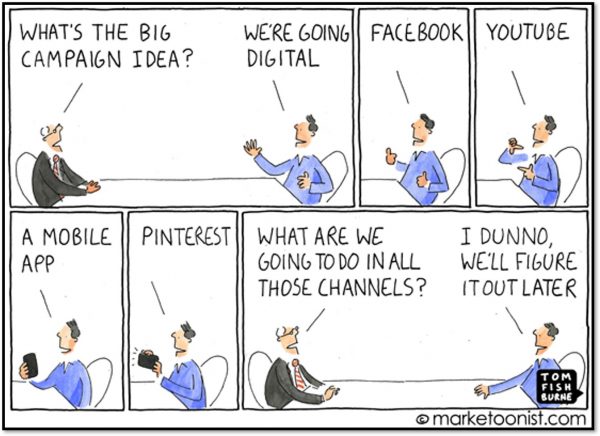Too many public and government organisations are leaving themselves wide open to severe reputational risk by not having a social media strategy or adequate governance structures.
The Main Social Media Risks for Organisations:
Barely a week goes past without a news story regarding a corporate boss, celebrity or employee getting in hot water following their behaviour on social media. Indeed, part of the Belfast Telegraph story on the PSNI report focussed on a number of social media posts that brought the force into disrepute, including a tweet from the then Chief Constable telling complaining officers to “dry their eyes” after complaining about aspects of their jobs.
Tone of voice can be difficult to master on social media, and it’s one of most common issues that causes negative social media incidents for organisations. In reality, it’s just one of the many risks that organisations face on social media, including:
- Employee Misuse of Social Media via their personal accounts use – for example bringing their employer into disrepute, or bullying a colleague via social media
- Employee Misuse of an organisations’ Social Media – for example insulting someone via an official social media account.
- Account Hack – hackers taking over a social media account and posting derogatory material
- Poor Account Governance – Failing to map out clear responsibilities on the chain of command on social media access, not leaving all account login information in the hands on one person.
Three Key Structures for Social Media Management
So what do I advise organisations to do to ensure they are managing and operating social media effectively and to minimise risk? Three key structures are required:
- A social media strategy / plan – setting out the main audience targeting, types of content, networks and management
- A social media policy – setting out the framework for how social media will be used, accessed and elements of IT security, how employees should use social media on behalf of the organisation and guidelines via their personal accounts.
- Social Media Training: Practical training in how to use social media effectively, and advice and guidance on the social media policy and how to deal with difficult situations on social media.

The Importance of Social Media Strategy
First, let’s define Social Media Strategy. Here’s a great overview from Smart Insights:
“A social media strategy defines how your organization will use social media to achieve its communications aims and the supporting platform and tools it will use to achieve this. At a basic level it’s a simple statement of intent, outlining the goals and measurable objectives for using social media, and the target outcomes you want to achieve. It does this in the context of the overall business and comms plan so that social media isn’t in a silo but working in parallel with other channels.”
It’s often the case that Communications and PR managers are aware they need a social media strategy and training, but are hampered by a lack of budget or buy in. Unfortunately it’s all too common for senior managers to restrict budget for communications and social media, however many might be unaware of the reputational risks presented by not investing in a strategy.
My strong advice in this area is for communications managers push social media and the need for adequate governance, training and planning up the agenda and educating senior management on its importance.
Conclusion: The Value of Doing Social Media Properly
The ease at which organisations have been able to create social media accounts has lead to an ‘act now, think later’ approach (as highlighted by the cartoon below!). By setting up accounts and letting staff post to social media without proper guidance and training, organisations have left themselves wide open to risk on social media and are likely to be managing social media poorly.

There’s no doubt that the rise of digital and social media has placed more pressure on already stretched comms, marketing and PR units. However, as the Belfast Telegraph story highlights, there can be considerable risks caused by not having a plan and governance structure for social media use.
Paul McGarrity
Director
Octave Digital
